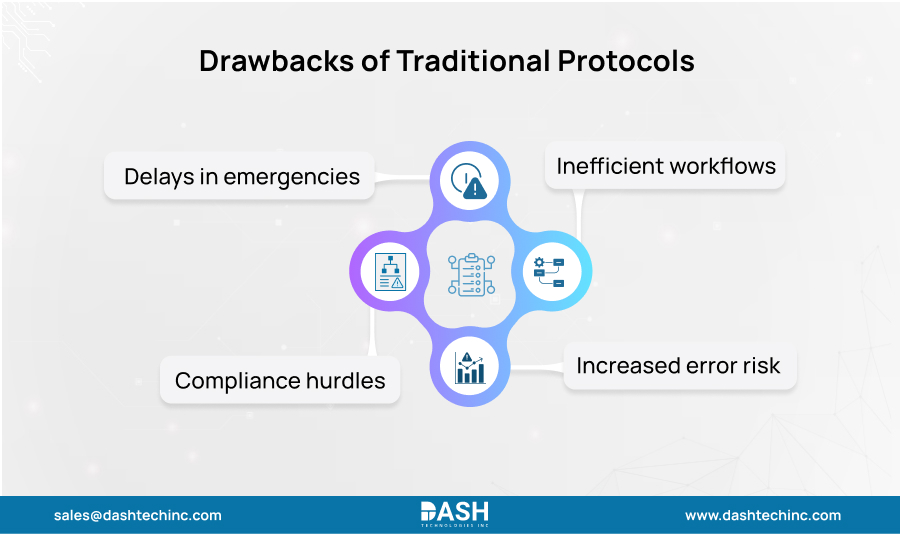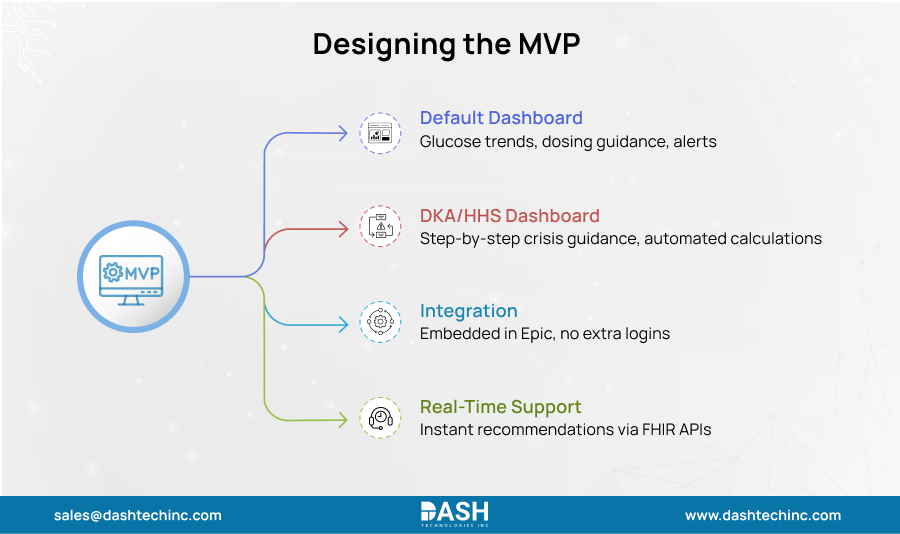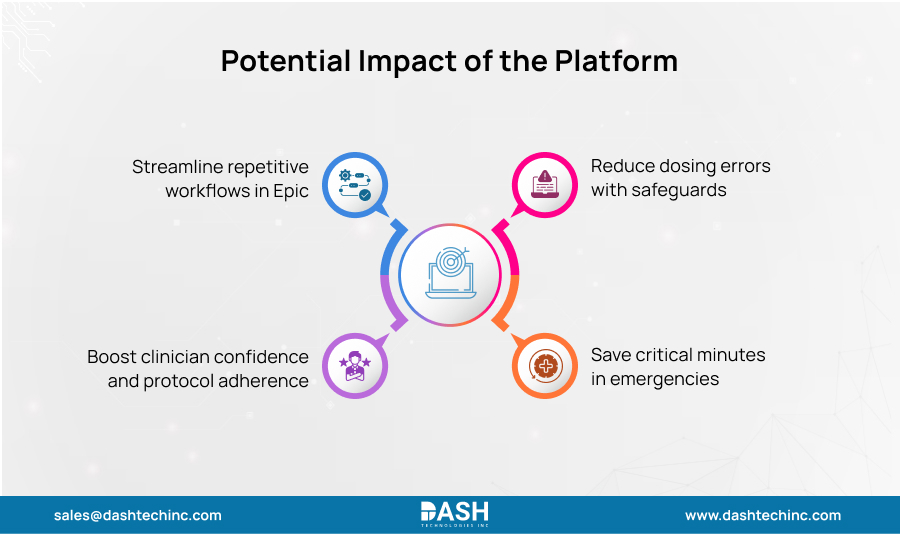Transforming Diabetes Care : AI-Driven Solutions for Clinicians
Introduction
Effective diabetes management in hospitals requires precise adherence to clinical protocols. Traditionally, these protocols have been maintained in thick binders at nurse stations or wards, covering everything from daily insulin adjustments to high-stakes emergencies such as DKA (Diabetic Ketoacidosis) and HHS (Hyperosmolar Hyperglycemic State). While reliable, these paper-based systems are often impractical during critical moments, where delays in calculations or referencing protocols can jeopardize patient safety.
Digital transformation in healthcare provides a solution by embedding clinical decision support for diabetes directly into clinicians’ workflows. Epic App Orchard diabetes apps, combined with AI in diabetes care, allow care teams to access real-time guidance, automate calculations, and follow evidence-based protocols seamlessly. Transforming diabetes care through digital tools ensures efficiency, accuracy, and improved patient outcomes.
Challenges with Traditional Protocols

Although binders have been trusted safety nets, they present several challenges:
- Time-consuming access: Clinicians cannot afford to flip through pages during emergencies.
- Fragmented workflows: Switching between paper and digital systems disrupts care continuity.
- Compliance hurdles: Manual documentation complicates adherence to HIPAA, FDA, and other regulatory standards.
- Increased risk of errors: Lack of real-time support reduces clinician confidence during high-pressure situations.
These limitations highlighted the need to digitize protocols and integrate them into the EHR to optimize clinical workflows.
Listening First: From Idea to MVP
The journey began by listening to clinical experts and frontline staff. One hospitalist summarized the challenge succinctly: “We don’t need another system. We need the right information where we already work—in Epic.”
This insight guided the development of a minimum viable product (MVP), focusing only on essential features that support care teams during their shifts. By avoiding overbuilding, the team ensured the platform was intuitive, practical, and aligned with real-world clinical workflows.
Designing the MVP: Simple, Integrated, and Actionable

The MVP was built around three key pillars:
- Default Dashboard: Provides clear glucose trends, safe protocol-based dosing guidance, and instant alerts for dangerous highs or lows.
- DKA/HHS Dashboard: Delivers crisis-ready guidance, automates calculations, and enables seamless tracking of patient stabilization.
- Epic Integration: SMART on FHIR integration, App Orchard-ready, and launched directly from the patient chart—eliminating extra logins or context switching.
The front end, an Angular-based app, allowed clinicians to view vitals, labs, and trends without leaving Epic Hyperspace. The backend, built on Node.js microservices, powered dosing algorithms and clinical decision support for diabetes, leveraging FHIR APIs to deliver real-time recommendations.
Building Together: From Protocols to Platform
The platform was developed through true co-creation. Clinical partners confirmed protocols and workflows, while the technical team translated those insights into product design and architecture.
Security and compliance were embedded at every stage: PHI was encrypted (AES-256 at rest, TLS 1.2+ in transit) and stored on Azure Cloud with PostgreSQL. Every action—from patient selection to insulin dosage recommendation—was logged to meet HIPAA and SOC2 standards. Data flowed seamlessly from Epic to backend algorithms and back into clinical notes, ensuring traceability and safety.
Through iterative prototyping, the platform matured into a solution trusted by both clinicians and developers. Today, it is live on the Epic App Orchard, ready for adoption.
Potential Impact

Adoption of the platform offers several operational and clinical benefits:
- Reduced dosing errors: Built-in safeguards and validation rules minimize human mistakes.
- Time savings in emergencies: Automated calculations guide care teams step by step.
- Workflow efficiency: Repetitive tasks are embedded directly into Epic, freeing clinicians for higher-value care.
- Increased confidence: Protocols have surfaced within the EHR, eliminating reliance on paper binders.
These improvements extend beyond efficiency, directly supporting better patient outcomes and reinforcing the role of AI in diabetes care.
The Road Ahead
Publishing the platform in Epic was only the first step. Widespread adoption will require education, pilot programs, integrations, and hospital partnerships.
Future enhancements will include:
- Predictive analytics: Anticipating glucose swings using AI-based diabetes prediction.
- IoT and bedside integration: Real-time data streams to support clinical decision-making.
- Adaptive AI recommendations: Personalized guidance that evolves with patient patterns over time.
As with the MVP, all future developments will be co-designed with clinicians to ensure usability and trust.
Conclusion
Transforming diabetes care is not solely about technology—it is about partnerships. By translating clinical expertise into secure, scalable, and interoperable tools, Epic App Orchard diabetes apps provide real-time decision support, streamline workflows, and enhance patient outcomes.
This initiative demonstrates the potential of AI in diabetes care and the power of digital transformation in healthcare. It shows that meaningful innovation comes from collaboration, usability, and integration—not from technology alone. By embedding trusted protocols into everyday clinical workflows, hospitals can optimize efficiency, reduce errors, and ultimately improve patient lives.
About Dash

Dash Technologies Inc.
We’re technology experts with a passion for bringing concepts to life. By leveraging a unique, consultative process and an agile development approach, we translate business challenges into technology solutions Get in touch.








